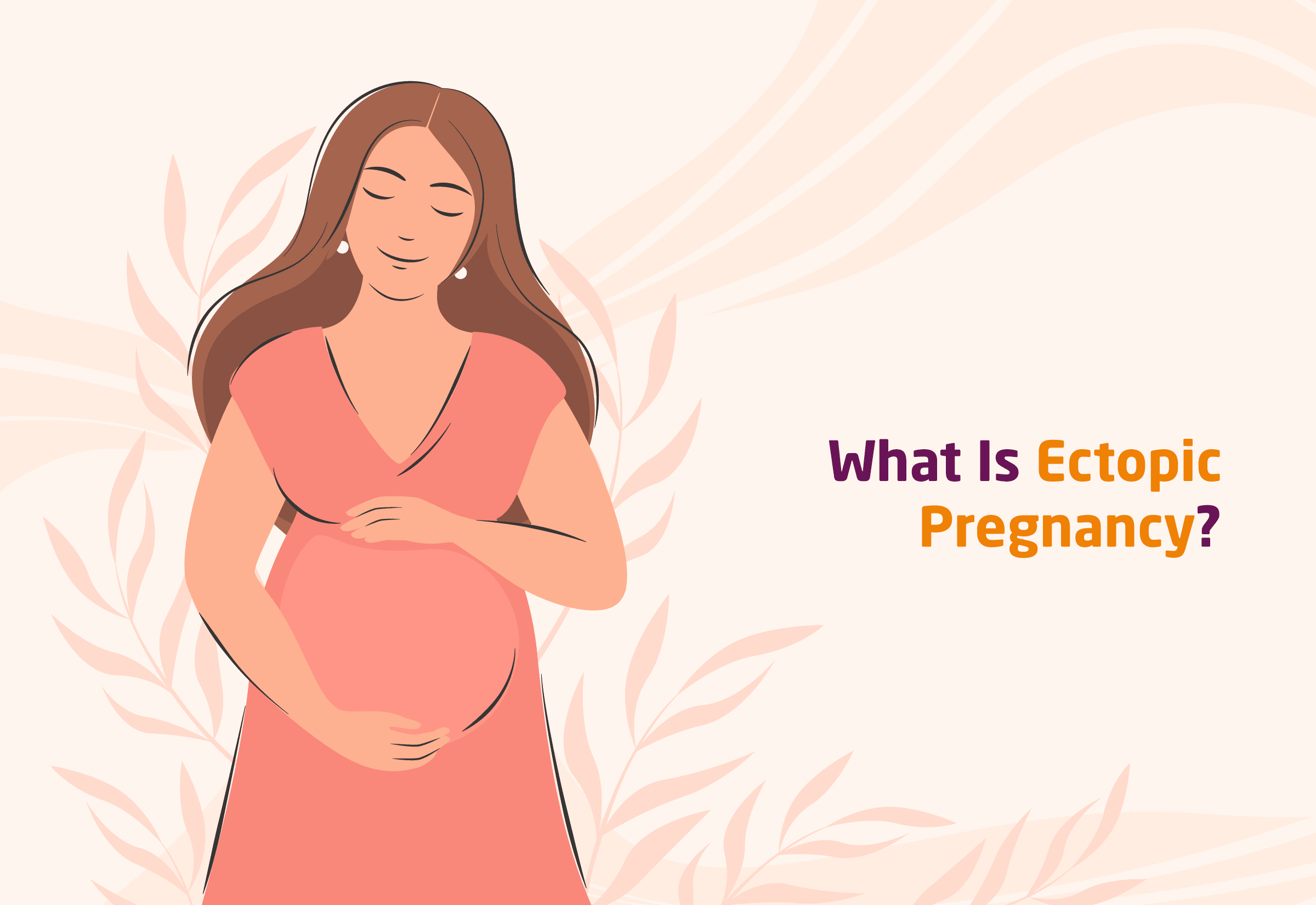What Is Ectopic Pregnancy?
A pregnancy that develops outside of the uterus is referred to as an ectopic pregnancy. This occurs when a fertilised egg implants in an unsuitable structure. In the fallopian tube (a pair of structures that connect the ovaries and uterus), an ectopic pregnancy frequently develops. An ectopic pregnancy may occasionally develop on an ovary or in the abdominal cavity.
This condition poses a threat to life. An ectopic pregnancy is one that cannot be brought to term (until birth) and, if left untreated, could be deadly for the mother.
Also read: Blocked Fallopian Tubes Treatment
How serious is an ectopic pregnancy?
The condition known as an ectopic pregnancy is critical. The uterus is specially designed to hold a developing foetus. As the foetus develops, this organ has the ability to stretch and enlarge. There is less flexibility in your fallopian tubes. As the embryo develops, it may explode. Large-scale internal bleeding is possible when this occurs.
To prevent damage to the fallopian tube, and other organs in the abdominal cavity, internal bleeding, and death, an ectopic pregnancy needs to be treated straight away.
Where does an ectopic pregnancy happen?
Anytime the fertilised egg implants outside of your uterus, the pregnancy is regarded as ectopic. The embryo is intended to pass via your fallopian tubes and embeds itself in the uterine wall, where it can start to develop. The embryo implants in one of the structures along the route during an ectopic pregnancy.
The fallopian tubes are where this can happen most frequently. Here are where tubal ectopic pregnancies, which make up the bulk of ectopic pregnancies, occur. Additionally, it may develop in the abdomen, ovary, cervix etc. Compared to ectopic pregnancies in fallopian tubes, these types occur less frequently.
What happens after you had an ectopic pregnancy?
Unfortunately, an ectopic pregnancy results in the fetus’s death. It is unable to endure outside of the uterus. To save the mother’s life, an ectopic pregnancy must be treated right away. This treatment may involve surgery or medical management. There may be significant internal bleeding if the fallopian tube ruptures after the embryo have been implanted there.
How would you know if you’re at risk of an ectopic pregnancy?
You might be more likely to experience an ectopic pregnancy if you’ve had the following:
- a history of pelvic inflammatory disease (PID), an infection that can lead to the formation of scar tissue in your cervix, uterus, and fallopian tubes.
- Surgery on your pelvic organs or on your fallopian tubes (including tubal ligation, often known as having your tubes tied).
- An ectopic pregnancy in the past.
- A history of infertility.
- Endometriosis.
- A history of smoking
- Sexually transmitted infections (STIs).
- At the time of conception, there was an intrauterine device (IUD) in place as a birth control method.
As you become older, your risk may also rise. Compared to younger women, older women are more vulnerable to an ectopic pregnancy.
What are the symptoms of an ectopic pregnancy?
Early signs of an ectopic pregnancy can resemble usual pregnancy symptoms quite closely. However, you can also encounter the following signs and symptoms of ectopic pregnancy:
- Dizziness and weakness.
- Vaginal bleeding.
- Lower abdominal, pelvic, and back pain.
The pain and bleeding that could result from a fallopian tube rupture could be so bad that they would produce additional symptoms. These may incorporate:
- Rectal pressure.
- Shoulder pain.
- Hypertension or low blood pressure.
- Fainting.
How is an ectopic pregnancy diagnosed?
Usually, an ectopic pregnancy is discovered during a visit to your doctor’s office. In order to find the ectopic pregnancy, your doctor will first do a number of tests to confirm the pregnancy. These tests consist of:
- Blood tests: Human chorionic gonadotropin (hCG) levels in your blood can be measured by your doctor. Pregnancy causes the production of this hormone. The term “serum beta-hCG level” may also be used to describe this.
- Urine tests: In order to perform this test, you must either urinate into a cup in your doctor’s office, where a test strip will then be dipped into the urine sample, or urinate on a test strip.
- Ultrasound exam: An ultrasound is an imaging test that employs sound waves to provide an image of the inside organs in your body. The use of ultrasound during pregnancy is common. This test will be used by your doctor to determine where the fertilised egg has been implanted.
How is an ectopic pregnancy treated?
An ectopic pregnancy may be treated in several ways. In some circumstances, your doctor could advise using a drug called methotrexate to stop the pregnancy’s progress. Your pregnancy will terminate as a result.
Your doctors will inject you with methotrexate. Although less intrusive than surgery, this method does necessitate follow-up visits with your doctor so that your hCG levels may be checked. Surgery may be performed according to history and examination. If your fallopian tube has already ruptured or if it is potentially ruptured, your doctor will want to operate.
Can you prevent an ectopic pregnancy?
Ectopic pregnancy cannot be prevented. However, you can strive to lower your risk factors by adopting healthy habits. These can include abstaining from smoking, maintaining a healthy weight and nutrition, and avoiding any STIs. Before attempting pregnancy, discuss any risk factors you may have with your doctor. If you miss your periods then do the pregnancy test and ultrasound to check for the location of the pregnancy.
Can you get pregnant again after an ectopic pregnancy?
The vast majority of women who experience ectopic pregnancies go on to have subsequent, successful pregnancies. After having an ectopic pregnancy, your chances of having more are increased. It’s crucial to discuss the reasons for your ectopic pregnancy with your doctor, as well as any risk factors you may have for developing another one in the future.

